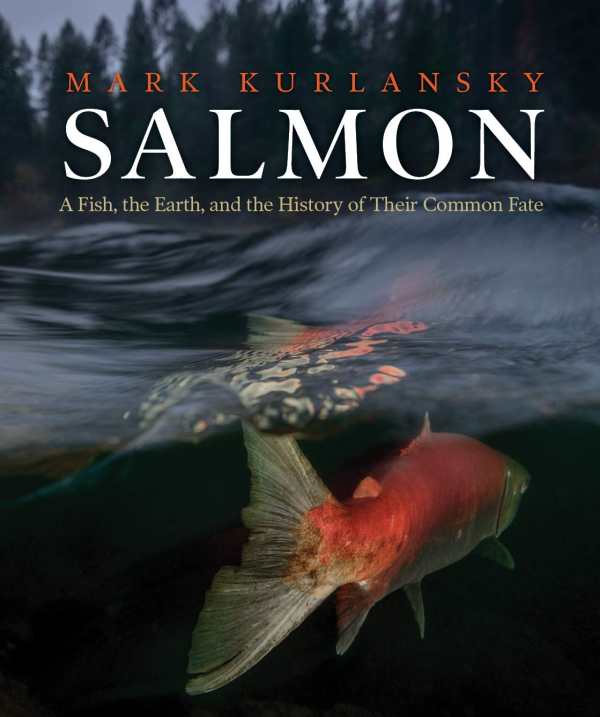Salmon
A Fish, the Earth, and the History of Their Common Fate
- 2020 INDIES Winner
- Silver, Ecology & Environment (Adult Nonfiction)
Mark Kurlansky’s Salmon makes the species an ecological poster child and a microcosm of the environmental challenges we face.
More than an environmental book about overfishing, the text includes a comprehensive natural and cultural history about how the salmon impacts the world. A salmon may be: a food source, a commodity, a symptom of a troubled planet, a dweller in streams, an ocean swimmer, or each of these and more. Kurlansky proves that resilient salmon have impacted the world for generations, though the species now faces an uncertain future because of compromised habitats and humanity’s impact.
Today’s salmon population decline is striking when compared to historical data showing that some rivers used to boast millions of the fish. The book traces how that change came about, including images of rivers teeming with fish with sawdust-choked gills, rivers dammed to them, and the start up of salmon fisheries and farms.
Concern for salmon is reflected in voices from the past speaking to the fish’s value and the need to protect it, including from Charles Darwin and Charles Dickens. The result is a fascinating mosaic of history and science, embellished by remarkable illustrations that are a riot of fins and color, ranging from closeup natural shots to various landscapes and historical illustrations.
The real beauty of the book is in its subtle transformation of a species often thought of in terms of food into one that needs to be considered with care and even championed. Its historical aspects are not easier to read once these connections are made. And while it will take a lot to change the calculus of population decline, Salmon shows that, in many ways, the salmon’s fate might also be our own.
Reviewed by
Jeremiah Rood
Disclosure: This article is not an endorsement, but a review. The publisher of this book provided free copies of the book to have their book reviewed by a professional reviewer. No fee was paid by the publisher for this review. Foreword Reviews only recommends books that we love. Foreword Magazine, Inc. is disclosing this in accordance with the Federal Trade Commission’s 16 CFR, Part 255.

